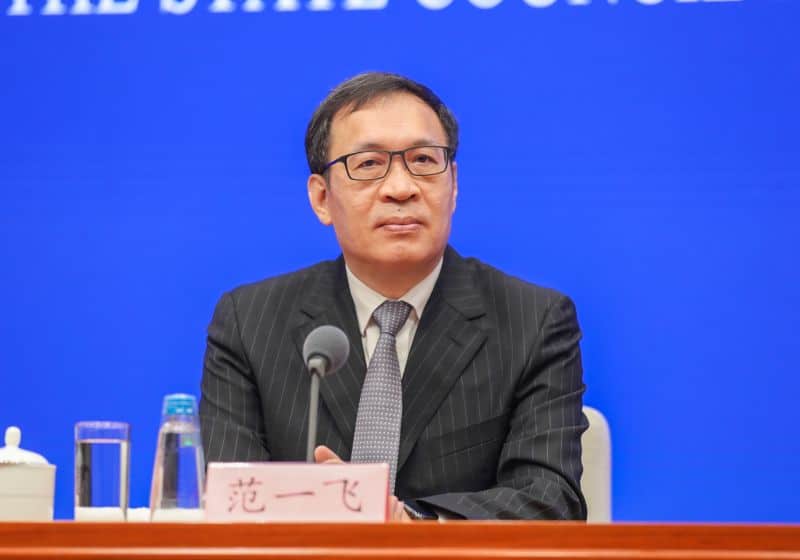China’s central bank has reiterated concerns over cryptocurrencies, with a senior official saying today that digital currencies such as Bitcoin and stablecoins had become speculative tools and could pose threats to financial security and social stability.
Fan Yifei, a deputy governor at the People’s Bank of China, said today in a briefing that stablecoins, especially so-called global stablecoins, could bring risks and challenges to international monetary mechanisms and clearing systems.
“We’re quite worried about this issue, so we’ve taken some measures,” Fan said, without elaborating.
Fan also said China’s central bank was making efforts to push ahead with the testing of the digital yuan, and that it had recruited 10 million users for invitation-only trials.
Chinese crypto blogger Wu Blockchain wrote on Monday that CNHC, a stablecoin pegged to offshore yuan, had announced a partnership with Conflux, a Chinese public blockchain, in a bid to promote the internationalization of the yuan and break the monopoly of the SWIFT system used by banks the world over.
China’s rulers have taken a dim view of cryptocurrencies, and have banned crypto trading in the country. Just yesterday, a Beijing office of the PBoC said it had ordered a company in the capital that was suspected of offering software services for crypto trading to shut down as part of an ongoing nationwide crackdown on the industry.
Last month, the central bank summoned some of the country’s biggest banks, alongside digital payments giant Alipay, to instruct them to cut off financing sources for cryptocurrency transactions
In recent months, Chinese provincial and other administrators, including authorities in Inner Mongolia, Xinjiang, Qinghai, Yunnan and Sichuan, have started to clamp down on crypto mining, and Chinese miners are decamping to countries where they are less unwelcome. Some early favorites among destinations for miners are Kazakhstan, North America and Northern Europe.
China is not alone in pouring cold water on stablecoins. In March, Thailand’s central bank published a policy that outlined a regulatory approach towards stablecoins and declared Terra’s THT stablecoin illegal.
Central banks in China, Thailand and the United Arab Emirates — alongside Hong Kong’s de facto central bank, the Hong Kong Monetary Authority — have been working together on an initiative known as the m-CBDC Bridge, which aims to support real-time cross-border payments.





